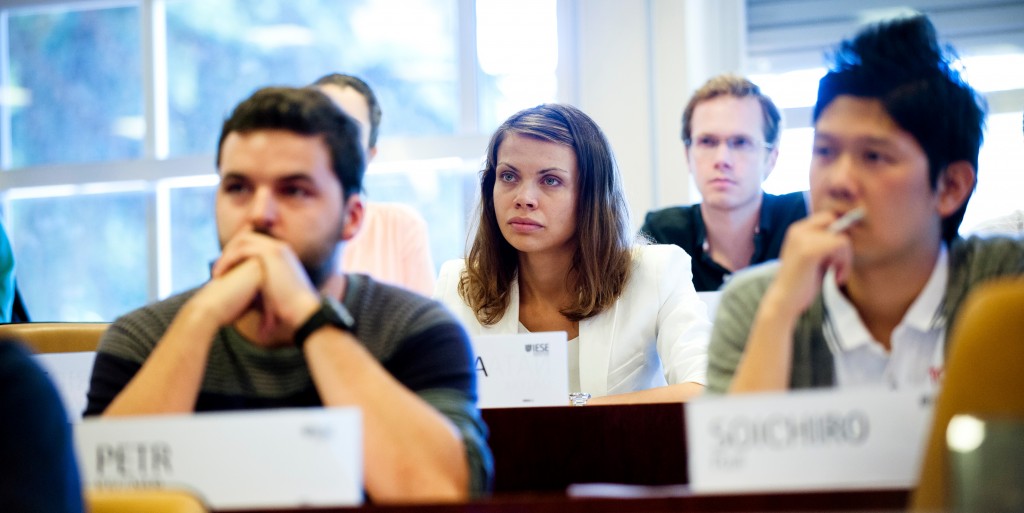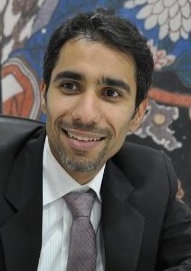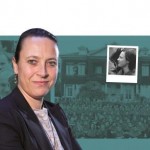Prof. Luis Palencia Herrero began IESE’s MBA program in 1987 a year after earning his undergraduate degree in civil engineering from the Universidad de Cantabria. He worked in the private sector for three years before returning to IESE in 1992 to join the faculty of the Department of Accounting and Control. He acquired his master’s and PhD degrees in Business Administration (Accounting) from the University of California-Berkeley in 1999.
Question: Please tell us about your transition from engineering to accounting and then to teaching Analysis of Business Problems.
Answer: I started my MBA in 1987, a year after finishing my university studies. Back then it wasn’t unusual to have limited business experience prior to starting an MBA. I liked engineering but felt that there was something missing, so decided to do an MBA and then return to engineering.
Before I finished the program, something happened (serendipity, I guess): one day, I did an accounting exam and finished a bit early, so I drew a cow. Yes, a cow. The professor, a young guy named Eric Weber, found it funny, and we began talking about IESE and the possibility of my becoming a professor at the school. Three years after graduation, I came back to IESE to become a professor.
At IESE, each department is in charge of faculty recruiting. Obviously, accounting isn’t the most exciting thing in the world, but it offers the chance to do continual and relevant teaching.
Most courses hang from specific departments at IESE, but others—like Analysis of Business Problems (ABP)—are cross-sectional and taught by professors from different departments. ABP tries to help students develop their own thinking and problem-solving frameworks and get them up to speed with the case method. It’s also a way to put professors together from different departments to share their ideas and thoughts on this integrative course. I started teaching this course in 1999 with my friends Rafael Fraguas, Mike Rosenberg and Carlos García Pont.
Q: Was there anything you hoped to cover in ABP but weren’t able to?
A: The objective of ABP is to allow students to develop their own model of thinking and of framing problems. This is one skill that you will take with you after your MBA that will not easily go away. Overall, I think—and I hope—that this objective has been accomplished.
Q: In your opinion, what are the main challenges that MBAs will face in the next three to five years?
A: The common saying “the world is changing very fast” is actually true; learning techniques such as accounting rules is not likely to have much value added since rules are easily forgotten. On the other hand, an understanding of the impact of these rules and the ability to judge their suitability is a skill that is more likely to remain with you. What is key is the development of capabilities, which is why courses like ABP are so important. Five years down the road, the world will be VERY different and you will only retain these skills and capabilities, that personal thinking model that will remain with you for the rest of your life.
I don’t know where all of you will be in three to five years: some will be lucky, others less so, but I recommend that you always keep the appetite for learning that you have now.
Q: How did your year in the military help you in business?
A: I have fond memories of that year. It helped me become better acquainted with the “fabric of society.” Here you guys are in a place where everyone is smart and you’re being continuously challenged in every class. After the MBA, most of you will be working in “real life” settings with a diverse variety of individuals with different goals, capabilities and attitudes. Coping with the inevitable frustration and finding your way is the important thing. I would say it is one of the most important challenges you’ll face.
Q: What’s your favorite book?
A: Good question. I am, as you know, an accountant, who likes to keep a record of things. I keep a rolling list of the 10 books that in some way have influenced my life. They aren’t necessarily “great” books, but have been important to me nonetheless.
- The Class (Erich Segal)
- Tiempo de silencio (Luis Martín Santos)
- Juegos de la edad tardía (Luis Landero)
- Stoner (John Williams)
- Time and the Conways and Other Plays (J.B. Priestley)
- The Fountainhead (Any Rand)
- To Kill a Mockingbird (Harper Lee)
- Death of a Salesman (Arthur Miller)
- From Here to Eternity (James Jones)
- S. Your Cat Is Dead (James Kirkwood)
Like people with too much curiosity and too little time, I keep buying books at a higher rate than I can read them. I have some digital books but still prefer paper. I guess I am old-fashioned in that respect.
Q: What are your hobbies?
A: I like movies, film history and reading about movies. That’s it. I have no more hobbies.
Q: Is it because you don’t have time?
A: No, not at all. I simply prefer to have fewer hobbies and focus on them rather than having many different ones.
Q: Any movie recommendations?
A: One of my favorites is “Once Upon a Time in America.” Another movie that I would recommend all MBAs see is “Glengary Glen Ross.” Watch it regularly and observe what happens to the characters. Their evolution might hold the key to your evolution.
Q: Can you tell us about a funny situation you had in class?
A: Once, due to a schedule change, half of the students in one of my classes got one version of the case, the other half got another one, and I got a third. That was fun. Particularly when it was over!
Q: Your favorite place to retire?
A: I don’t know yet. I have over 800 books at home waiting to be read and won’t be able to read more than 15 per year, so my preferred place would be anyplace where I could comfortably read and have my family and friends around.
Q: What’s your favorite cuisine?
A: I like Indian food. It’s great that IESE offers it every day.
Q: Professor, your handwriting…
A: Yes, yes, I know… Bad, bad…really bad… It used to be better. I had some health issues six years ago and lost some sensitivity in my right hand. How about that for an excuse? (laughs) I hate being famous for bad handwriting.
Q: Any closing remarks?
A: I wish I had the chance to know all of you better. A group of almost 300 MBAs leave IESE every year, all with unique talents and personal stories. I’m not able to get to know most of them, which is a pity. We’ve had magicians, dancers, Formula 1 drivers, bullfighters…
Q: Do we have a bullfighter this year?
A: Actually, there are over 100 bullfighters: being a professor at IESE and teaching in the school’s U-shaped classrooms before a demanding audience is a bit like bullfighting.
I would like to thank Prof. Palencia for his time and candor during our interview. It was a pleasure interviewing him and getting to know a bit more about him. I hope our readers enjoy it as much as I have.
Until the next issue…









Great Article !!!